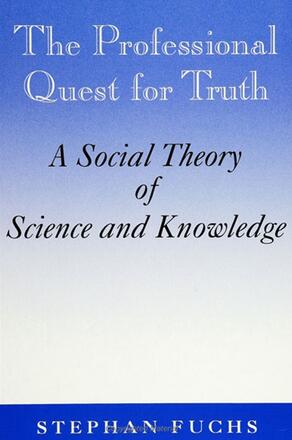
The Professional Quest for Truth
A Social Theory of Science and Knowledge
Alternative formats available from:
Description
This book argues that the power of science as the most respected and authoritative world view is based on its superior material and organizational resources, not on its superior rationality. Fuchs approaches science as a social construct, and utilizing a theory of scientific organizations, he analyzes knowledge production in scientific fields—how they differ in their resources and how these differences affect how science is conducted. The book explains why certain fields produce science and facts, while others engage in hermeneutics and conversation; why certain specialities change through cumulation rather than fragmentation; and why some fields are relativistic while others are positivist in their self-understanding. This general theory of knowledge is applicable not only to science, but to all varieties of professional groups engaged in knowledge production.
Stephan Fuchs is Assistant Professor of Sociology at the University of New Hampshire, Durham.
Reviews
"Fuchs shows how scientific activity, revealed in micro-detail, is embedded in particular kinds of organizational contexts; that the research methods and social structures of interaction in scientific communities affect the degree of uncertainty of scientists' activities; and the kind of discourse they engage in.
"Fuchs ends up with both a general theory of the determinants of scientific production, and with a challenge to the current factions in the sociology of ideas and sociology of culture generally." — Randall Collins, University of California, Riverside.